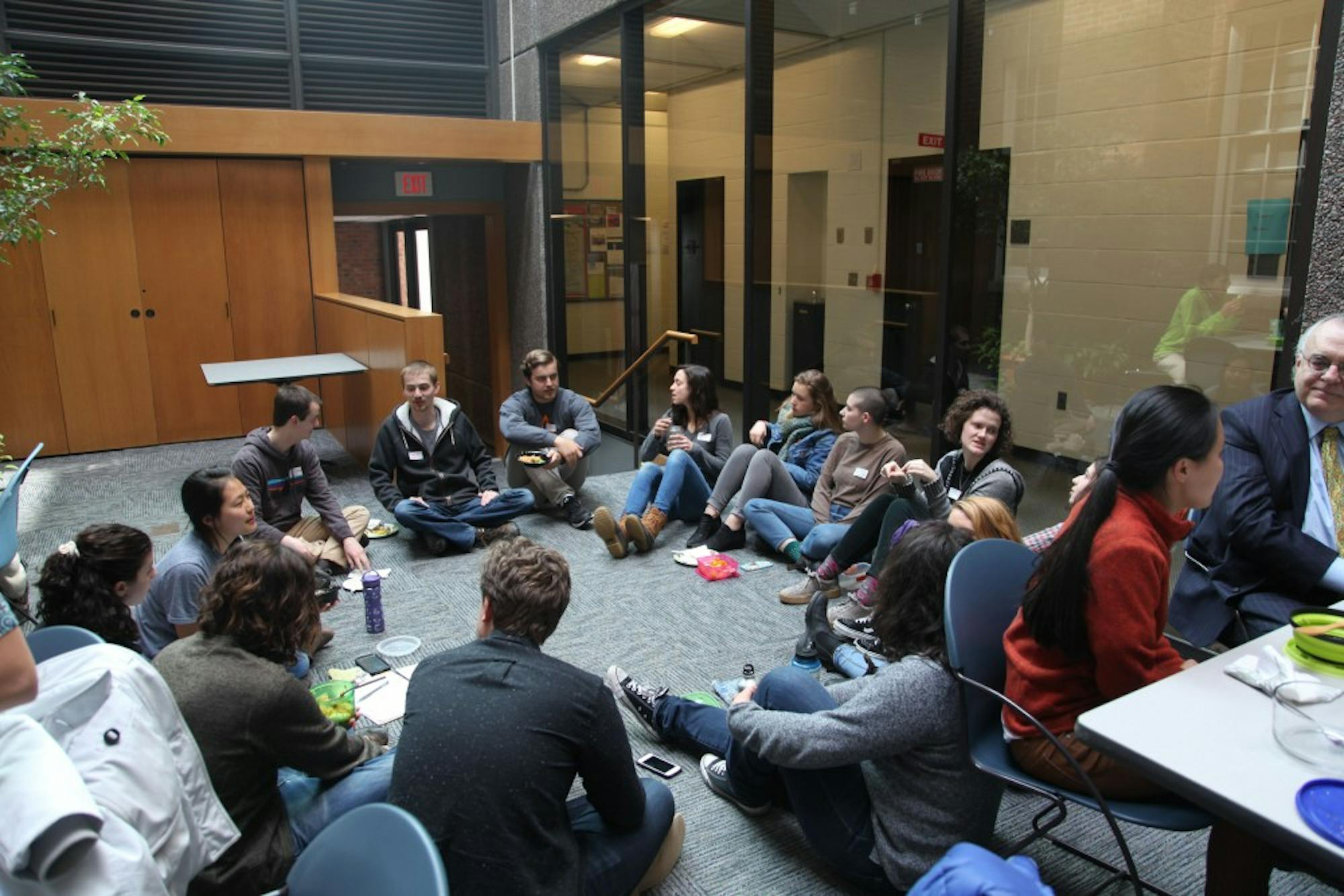Divest Dartmouth and the Inter-Community Council held their first divestment conference on April 7, which included workshops and a keynote speech by former Unity College President Stephen Mulkey, who helped lead the first college fossil fuel divestment in the nation.
Students from Middlebury College, Mount Holyoke College, Princeton University, Smith College, Tufts University, the University of New Hampshire and the University of Vermont were in attendance, as well as around 50 people from the College, according to Divest Dartmouth member and event organizer Lily Zhang ’18.
The conference was comprised of several workshops that focused on the intersectionality of divestment and how to improve divestment campaigns. Divest Dartmouth member Catherine Rocchi ’19 emphasized the importance of addressing forms of divestment that also touch upon issues of social justice, rather than only looking at fossil fuel divestment.
After the workshops, Mulkey presented a keynote speech on the story of Unity’s divestment and recent divestment trends in the U.S. A dinner discussion followed, which was also open to all of campus.
Mulkey said he agreed to be the keynote speaker at the conference because of Divest Dartmouth’s dedication to an important cause.
“I think what they’re doing is meaningful work, and it’s part of higher education to learn about what divestment is and [how] it’s relevant to student lives,” he said.
Though Mulkey said he recognizes the complications of divesting — particularly at schools with larger endowments — he is a firm believer in the plausibility and necessity of divestment.
“It is ethically indefensible that an institution dedicated to the proposition of the renewal of civilization simultaneously invests in its destruction,” Mulkey said. “There’s no doubt in my mind that it’s imperative for us to get this right, and frankly, we’re out of time in order to manage the consequences [of climate change].”

Topics discussed included environmental racism and classism, private prison divestment and tools for further strengthening divestment campaigns.
Micah Herskind, a junior from Princeton, led the workshop on private prison divestment.
“I learned a lot more about the [Boycott, Divestment and Sanctions] movement and what that is ... It was really interesting to learn more about how the issues I care about — [regarding] the prison system — intersect with these other areas,” Herskind said.
This diversity in speakers was a valuable asset and one of the highlights of the conference, Zhang said.
While the conference was centered around divestment in all its forms, Zhang said that the conference had an outreach aspect meant to introduce the concept of divestment to those who may not be familiar with it.
The conference’s secondary objective was to increase communication amongst various divestment campaigns at higher education institutions, Zhang said.
“[My favorite part was] having the chance to talk with students ... from a lot of different schools about ... the similar barriers they’ve encountered or the encouraging things they’ve seen [while campaigning for divestment],” Herskind said. “[It was] really nice to build solidarity across campuses.”
In addition to divestment, Zhang also said Divest Dartmouth hopes that the College will begin transitioning to a broader, more intersectional approach to its sustainability efforts, which can include keeping communities healthy and letting all individual people flourish.
“Sustainability [needs to] be more than [the] classic, environmentalist standpoint,” she said.
Sydney Abraham, a freshman representing Divest Smith College, said that revisiting the broader concept of divestment helped her refocus on this cause. Prior to the conference, Abraham said she had limited interactions with people interested in divestment outside her college.
“[In divestment campaigns] we get very caught up in the formalities … and a lot of times we lose sight of the actual problem, which is climate change,” Abraham said. “[The conference] really puts [the problem] back into perspective and makes us all remember why we’re all doing this.”
Isaiah Miller ’21, a Dartmouth attendee not affiliated with Divest Dartmouth, said he found that the group dynamic at the conference was beneficial for his introduction to divestment.
“My favorite part of the conference was seeing and being part of a fairly large group of people who care about addressing the problems of our institution’s investment,” Miller said.





